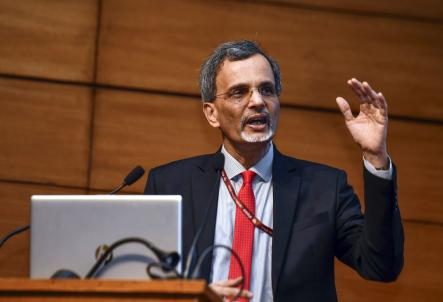Amid Workweek Debate Economic Survey links Workplace Culture with Mental Health & Productivity
The Survey expresses concern about the low levels of mental well-being and underlines the negative economic ramifications of these trends. It also highlights that excessive work hours can adversely affect mental well-being and, ultimately, slow economic growth.
The Economic Survey 2024-25, presented by the Chief Economic Advisor V Anantha Nageswaran on Tuesday, highlights that lifestyle choices, workplace culture, and family dynamics are critical for productivity and essential for India to achieve its economic ambitions.
The Survey points out that the rise in mental health issues among children and adolescents is often linked to the overuse of the internet, particularly social media. Referring to Jonathan Haidt’s book The Anxious Generation: How the Great Rewiring of Children Is Causing an Epidemic of Mental Illness, it emphasizes that the arrival of the “phone-based childhood” is fundamentally altering the experience of growing up.
The Survey stresses that a better workplace culture will contribute to improved mental well-being. It also emphasizes that lifestyle choices and family situations are vital factors in maintaining mental health.
The Survey expresses concern about the low levels of mental well-being and warns of the negative economic ramifications of these trends. It highlights that hostile work cultures and excessive work hours can adversely affect mental well-being and, ultimately, slow economic growth.
Regarding food patterns, the Economic Survey states that individuals who rarely consume ultra-processed or packaged junk food tend to have better mental well-being than those who consume it regularly. Additionally, the Survey notes that those who rarely exercise, spend excessive time on social media, or lack close family ties experience worse mental well-being. Spending long hours at a desk is equally detrimental to mental health.
The Economic Survey calls for urgent school and family-level interventions to encourage healthier pastimes, such as meeting friends, playing outside, and investing time in building close family bonds. These activities could help keep children and adolescents away from excessive internet use and improve their mental well-being.
The Survey concludes by advocating for a return to more traditional practices to improve mental health. It emphasizes that putting mental well-being at the center of the economic agenda is crucial, considering its direct impact on human welfare and the nation's spirit.
Given the immense scale of the problem, the Survey stresses the importance of finding viable, impactful preventive strategies and interventions, as India's demographic dividend depends on the skills, education, physical health, and, above all, the mental health of its youth.



COMMENTS
All Comments
By commenting, you agree to the Prohibited Content Policy
PostBy commenting, you agree to the Prohibited Content Policy
PostFind this Comment Offensive?
Choose your reason below and click on the submit button. This will alert our moderators to take actions